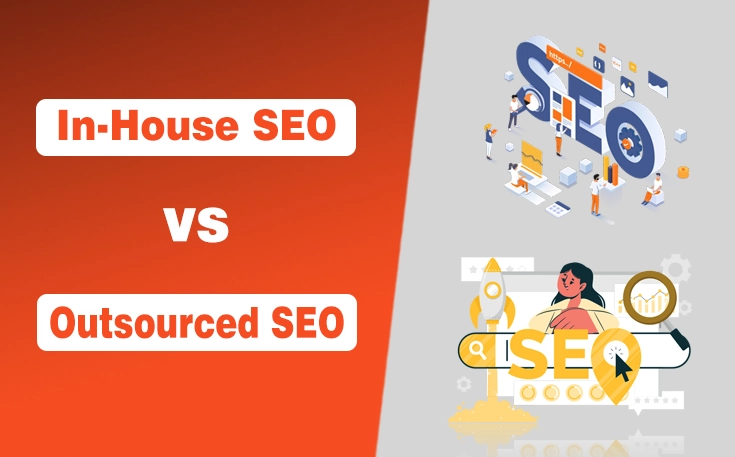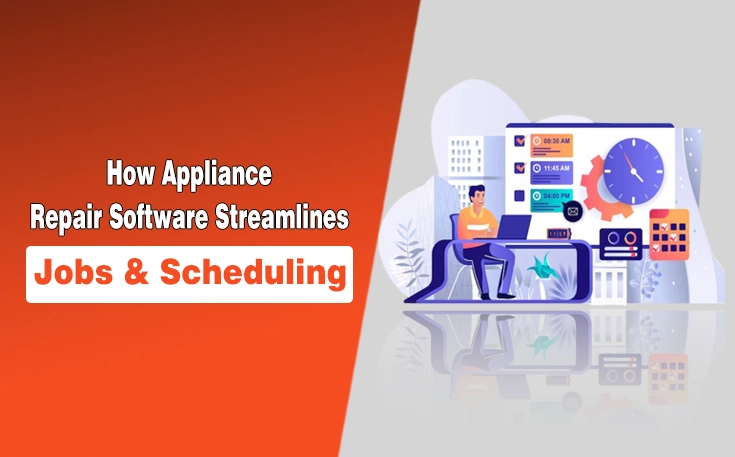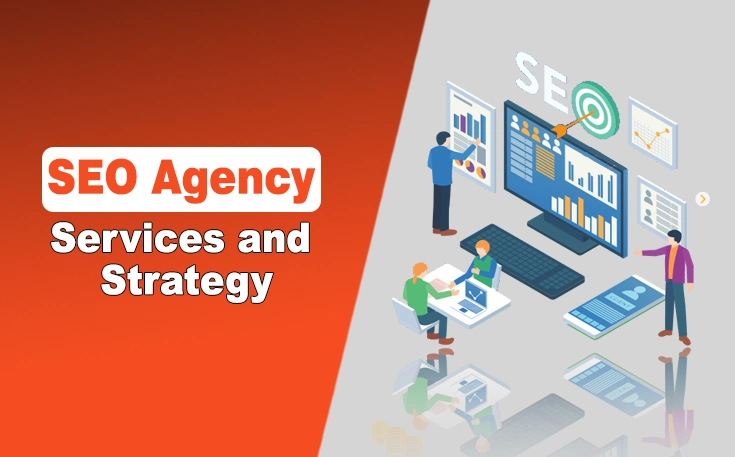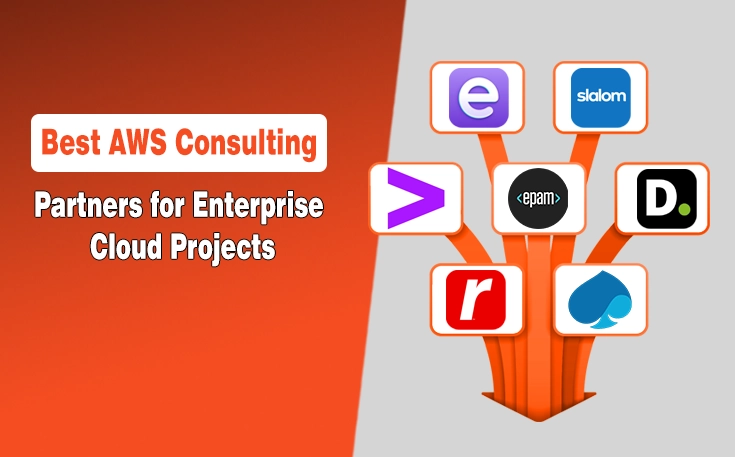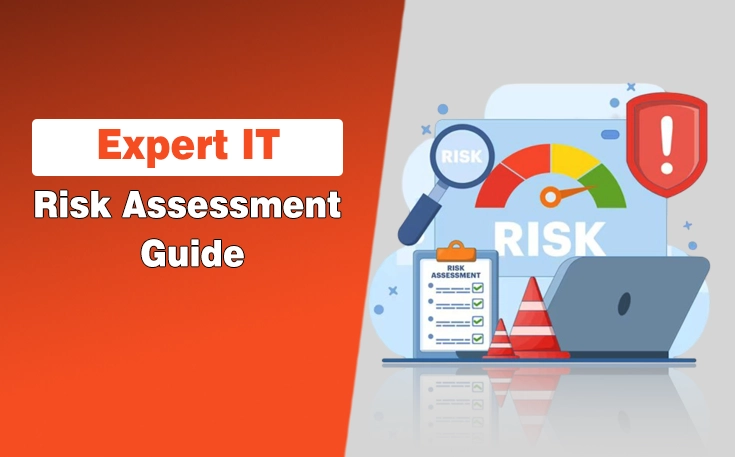The need for search engine optimization in modern business is non-negotiable. These days, it’s the fuel you need to get your company noticed and gain a competitive edge. Yet, the question that’s still there is whether you should cover your company’s SEO needs in-house or delegate it to professionals (In-House SEO vs Outsourced SEO).
Let’s not sugarcoat it. Deciding between outsourced and in-house SEO can be challenging. Both models come with some advantages and disadvantages, and there is never a one-size-fits-all answer.
In this blog post, I will help you answer these questions and define which solution is optimal for you, In-House SEO vs Outsourced SEO.
Defining Your Real SEO Needs
In order to assess the potential effectiveness of doing SEO in-house vs outsourcing, you need to explore your current business needs.
Use the following framework to get on the right track:
- Clarify your current business goals—Your big goals should guide your SEO targets and KPIs. Depending on whether you want to drive more traffic, launch your business in a new market, or have other goals, you might need a different approach to search engine optimization.
- Rethink your target audience—Look at your current ideal buyer profile and analyze the actual needs of your TA. Doing this can help you define whether your past marketing and SEO efforts have been targeted correctly.
- Run a thorough audit—Look at the point A you have–your traffic volume, current ranking, and other metrics can show how well your business stands online. On top of that, a detailed website audit is your go-to for detecting any technical errors, content gaps, or other issues.
- Define the areas of optimization to focus on—Consider the gaps and strengths you have to map out the specific SEO steps needed to bring you forward.
When all is set, closely evaluate the possible ways to address your SEO needs.
In-House SEO: Definition, Benefits, and Best Use Cases

What is In-House SEO?
In-House SEO means either doing it yourself or hiring a dedicated SEO specialist(s) to work on it. The DIY model might be a good starting point for small businesses that don’t have a tangible budget. However, it can be a thorny path filled with mistakes and failures, unless you are an expert.
Hiring an in-house specialist is a more reliable option. An expert with decent education and expertise can help you develop a winning strategy and bring it to life, accomplishing your business goals. As of 2025, the average salary you’ll have to pay to your specialist is $62,375 per year, though it can go significantly higher depending on the experience. Additional expenditures can also include employee turnover and the cost of the tools you use in your strategy. If you opt for the best SEO software for agencies, the total annual cost can be around $1,200.
Pros:
- An in-house specialist has a deep understanding of your business.
- Communication within your team might be easier and more streamlined.
- You get long-term commitment and full control of your strategy.
- It can be a more cost-effective solution for medium to large businesses in the long run.
Cons:
- The initial investment is huge.
- Slower progress because you need to hire the right people and build a productive team before getting real results.
- There might be certain limitations and gaps in skills or tools.
So, when is it a good choice? Handling search engine optimization in-house is the best choice if SEO is the foundation of your marketing and you are seeking to build a long-term process.
Outsourced SEO: Definition, Benefits, and Best Use Cases
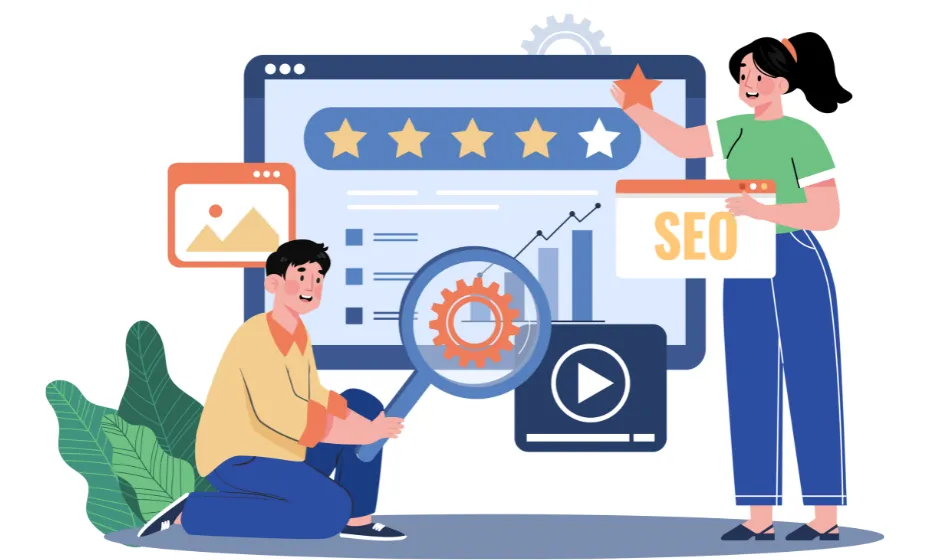
What is Outsourced SEO?
Outsourced SEO means delegating a part of or the entire responsibility for implementing your search engine optimization needs to a third-party vendor.
There are two types of services that you can use:
- Agency—Agencies typically come with well-organized teams of specialists, each of whom handles a specific area of SEO, such as strategy planning, content creation, etc. Their teams are equipped with all the needed knowledge, skills, and software to deliver all-around services. It’s a good choice when you need a holistic optimization solution.
- Consultant—Unlike agencies, a freelance SEO consultant is a standalone specialist who works independently. They can help you handle a particular area of optimization or consult you on the questions you have.
Pros:
- Access to top-tier expertise, including from overseas.
- Faster execution
- External contractors can give you a second eye on your strategy and help find weak spots.
- Savings on software costs and access to premium SEO tools.
- It can be a more cost-effective solution for small to medium-sized companies, cutting down the cost of building your own team.
- Faster strategy implementation and the possibility for scaling.
Cons:
- The quality of services can vary depending on the chosen vendor.
- Possible challenges in communication, especially when you outsource overseas.
- Reduced familiarity with your business and less control.
- The contract terms can be restrictive, which may affect you in the long run, and there might be hidden charges.
Okay, then what’s the best use case for an SEO consultant or agency? It can be an optimal solution when you are seeking the expertise you lack, have to handle a specific area of optimization (e.g., technical work), or require scalability.
Hybrid SEO: The Best of Both Worlds
There is also a third option that you can consider. The hybrid model implies combining in-house and outsourced SEO for maximum outcomes. The perks? It lets you gain the benefits of both models and amplify your results.
For example, you have a few in-house specialists who handle the groundwork, such as strategy development, on-page optimization, and content creation on an everyday basis. This might be sufficient for your company to cover its basic needs.
However, as the traffic to your site increases, you enter new markets, or otherwise grow, you might need to reinforce your strategy. When this happens, you can scale your efforts with the help of an agency or can delegate important parts of your SEO, such as website development and optimization, to top-level experts.
Main Considerations Based on Real-World Scenarios
Business Growth Pace and Goals
There are multiple scenarios in which leaning more toward in-house or outsourcing can make more sense. For small businesses, it might be crucial to give a fast jump-start and facilitate instant growth. Doing this with an inner team is hard because you need time to find and onboard the right talent and tools before you can get to your goals.
In this scenario, contracting with an experienced service provider can give you faster results as agencies already have a full stack needed to handle all your tasks. On the other hand, if SEO is at the heart of your marketing strategy and you want a long-term commitment, you may want to consider building your own team.
If you have a specific, short-term project, it can also work better with a third-party vendor. Let’s say you are entering a new market, launching a product, or simply improving your site’s technical work and UI/UX. In this case, using professional outsourced SEO services can let you handle it faster and more cost-efficiently.
Expertise Requirements
While weighing your business goals, you can determine which particular SEO tasks you need to focus on to accomplish them and which expertise and skill levels are required for them. Knowing this, evaluate your current in-house capacity–will you need to hire just one specialist or multiple employees? You also need to evaluate whether your existing team has the needed understanding of optimization and if you have enough resources (and time) to train it.
In a scenario where you have no available talents or understanding of SEO at the moment, using professional SEO services might be wise, as they bring you a full stack of skills and expertise. It’s also more cost-effective compared to hiring, training, and retaining your own talent.
Budgetary Limitations
The costs of in-house investment are rather high and long-term. Apart from salaries, it involves benefits, onboarding, training, and software. Working with an SEO consultant or agency is more flexible and can be fitted into different budgets.
In a scenario where you are a small or mid-sized business with a rather restricted budget, outsourcing can give you more benefits both cost-wise and time-wise. However, if you are ready to invest long-term and are looking for stability and commitment, you may consider hiring talent yourself.
Scope and Complexity
The last baseline consideration is the scope of work. Depending on your goals, the complexity of your daily tasks can increase or decrease. And you may want to consider different solutions to address different scopes and complexities.
For example, if you need a one-time audit or quick technical or on-page optimization, contracting a freelancer or agency will let you handle it faster and without high upfront costs. It’s also an optimal solution in a scenario when your SEO needs are fairly simple.
There also might be a scenario where you have a high complexity of work. Let’s say you are a large business in a highly competitive niche or have to handle high volumes of traffic. In this case, it can be great to have a dependable inner team that’s always on the same page. Nevertheless, a specialized agency (with a long-term contract) can also be a good choice, especially if you want to keep your initial investment cost lower.
Key Questions to Ask Yourself Before Making a Choice
After considering all important factors, also ask yourself these questions to make a more weighted choice:
- What is the role of SEO in my business growth tactic?
- Do I have the internal capacity to handle the needed tasks, or do I need access to specialized expertise?
- Do I have sufficient budget to invest in the needed tools and talent?
- Do I need a quick gain or a steady, long-term infrastructure?
- What are my scalability needs?
So, Do You Even Need to Outsource SEO Services?
Whether you sign a long-term contract with the best SEO agency you can get, hire a freelance expert, or decide to invest in an in-house team, each of these options can have its own benefits. As you now know, the right answer comes down solely to your current situation and future goals. Use the insights and tips from this guide to decide whether your business needs an agency or not!
Need custom app with amazing features?
Get a Quote
